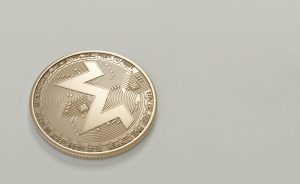How Does the Stock Market Work?

Here is some information to help you get started.
What are stocks?
It is important to ensure you first understand what stocks are. Stocks represent ownership interests in a business that you can invest in and are also known as equities. Some businesses choose to make their shares available to the public, as opposed to being owned by an individual, so if you purchase a share of stock, you will own a small part of that business, and in return, get to share the company’s success.
If a business wants to make shares available, they will issue them with an initial public offering (IPO). Once this has been completed, they will be available on an electronic marketplace called the stock exchange.
What is the stock market?
The stock market can be defined as a collection of shares and other financial securities that can be issued, bought, sold, or traded. The purpose of the stock market is to facilitate the exchange of these assets by providing real-time information to the public. The stock market comprises exchanges, such as the New York Stock Exchange or the London Stock Exchange, which list a variety of stocks that aim to bring buyers and sellers together. The exchange will track the price, supply and demand of each stock.
Typically, on the stock market, you are not buying from the company directly. Instead, you are purchasing a share that someone has chosen to sell. This leaves the majority of stocks being traded between investors.
You only need a basic understanding of how the stock market works to get started. If you want to broaden your knowledge of the stock market, there are a plethora of online resources and books that you can read.
How do stocks work?
You can build your wealth through stock in different ways, for example, capital growth or dividends. Capital growth is obtained when you sell a share for a higher price than you purchased it for. Dividends are obtained when shareholders are rewarded by the company with a portion of their profits.
How are the stocks priced?
Stock prices are known for their risk because no one person is making the decision for their prices, instead, they are governed by the supply and demand between investors. You can think of the selling and buying of stocks similar to an auction. There is always going to be a limit on the price that someone is willing to sell their shares of stock for, and there will always be a maximum price someone is willing to invest when buying stock.
If the demand is high for a particular stock, then the price will rise. If the demand drops for a particular stock, or that stock is being sold more than it is being bought, then the market price will decrease.
How to buy a stock
If you are new to the stock market, before buying any stock, you should always do your research to ensure you are making a worthy investment. Take a look at the financial stability of the company, and use a book value calc.
Once you know what stock you want to invest in, you’ll need to start with a brokerage account to trade shares on the stock exchange. There are a variety of platforms that you can choose from, depending on your requirements and your goals.
All transactions must be carried out via a broker. A broker is an entity, either an online broker or an individual, who is licensed to trade stocks on the stock exchange. You can tell your broker what you want, they will relay the order to the exchange, and then deliver them to your account.
Through your account, you will be able to keep track of the stocks you have purchased and continue to buy and sell more stocks.
How do you know when the market is “up”?
Common terms such as “the market is up” is used when discussing the stock market. This is usually referring to the stock index, which represents the real-time performance of a large group of stocks, or a specific sector. This is a convenient way to benchmark and compare the performance of stocks, or an entire portfolio, and help you to make better decisions with your investments.
Learning about the stock market can help you navigate the industry and make better investments.




